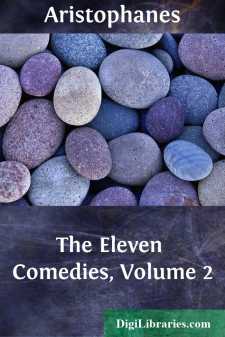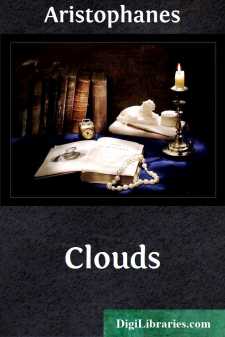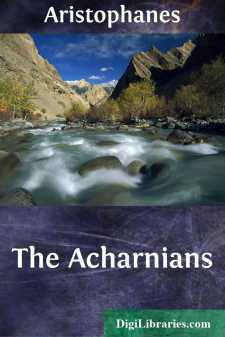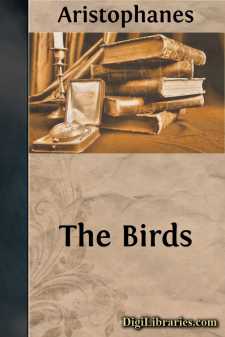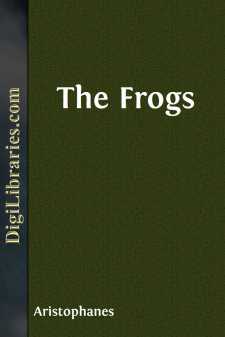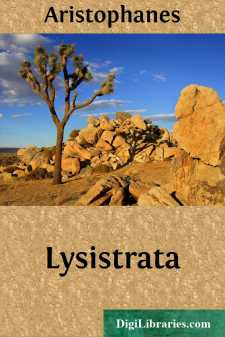Categories
- Antiques & Collectibles 13
- Architecture 36
- Art 48
- Bibles 22
- Biography & Autobiography 813
- Body, Mind & Spirit 142
- Business & Economics 28
- Children's Books 17
- Children's Fiction 14
- Computers 4
- Cooking 94
- Crafts & Hobbies 4
- Drama 346
- Education 46
- Family & Relationships 57
- Fiction 11829
- Games 19
- Gardening 17
- Health & Fitness 34
- History 1377
- House & Home 1
- Humor 147
- Juvenile Fiction 1873
- Juvenile Nonfiction 202
- Language Arts & Disciplines 88
- Law 16
- Literary Collections 686
- Literary Criticism 179
- Mathematics 13
- Medical 41
- Music 40
- Nature 179
- Non-Classifiable 1768
- Performing Arts 7
- Periodicals 1453
- Philosophy 64
- Photography 2
- Poetry 896
- Political Science 203
- Psychology 42
- Reference 154
- Religion 513
- Science 126
- Self-Help 84
- Social Science 81
- Sports & Recreation 34
- Study Aids 3
- Technology & Engineering 59
- Transportation 23
- Travel 463
- True Crime 29
Aristophanes
Aristophanes, an ancient Greek playwright born around 446 BCE, is renowned for his comedies that satirize Athenian society, politics, and cultural norms. His surviving works, including "Lysistrata," "The Clouds," and "The Frogs," are celebrated for their sharp wit, insightful commentary, and inventive use of language and humor. As a key figure in Old Comedy, Aristophanes' plays remain influential and are still performed today, highlighting the timeless nature of his critiques and humor.
Author's Books:
Sort by:
by:
Aristophanes
INTRODUCTION "This Comedy, which was produced by its Author the year after the performance of 'The Clouds,' may be taken as in some sort a companion picture to that piece. Here the satire is directed against the passion of the Athenians for the excitement of the law-courts, as in the former its object was the new philosophy. And as the younger generation—the modern school of...
more...
by:
Aristophanes
Scene: The interior of a sleeping-apartment:Strepsiades, Phidippides, and two servants are in theirbeds; a small house is seen at a distance. Time:midnight. Strepsiades (sitting up in his bed). Ah me! Ah me! OKing Jupiter, of what a terrible length the nights are!Will it never be day? And yet long since I heard thecock. My domestics are snoring; but they would not havedone so heretofore! May you perish...
more...
by:
Aristophanes
SCENE: A farmyard, two slaves busy beside a dungheap; afterwards, in Olympus. FIRST SERVANT Quick, quick, bring the dung-beetle his cake. SECOND SERVANT Coming, coming. FIRST SERVANT Give it to him, and may it kill him! SECOND SERVANT May he never eat a better. FIRST SERVANT Now give him this other one kneaded up with ass's dung. SECOND SERVANT There! I've done that too. FIRST SERVANT And...
more...
by:
Aristophanes
INTRODUCTION This is the first of the series of three Comedies—'The Acharnians,' 'Peace' and 'Lysistrata'—produced at intervals of years, the sixth, tenth and twenty-first of the Peloponnesian War, and impressing on the Athenian people the miseries and disasters due to it and to the scoundrels who by their selfish and reckless policy had provoked it, the consequent...
more...
by:
Aristophanes
INTRODUCTION 'The Birds' differs markedly from all the other Comedies of Aristophanes which have come down to us in subject and general conception. It is just an extravaganza pure and simple—a graceful, whimsical theme chosen expressly for the sake of the opportunities it afforded of bright, amusing dialogue, pleasing lyrical interludes, and charming displays of brilliant stage effects and...
more...
by:
Aristophanes
Xanthias Shall I crack any of those old jokes, master,At which the audience never fail to laugh? DIONYSUS. Aye, what you will, except I'm getting crushed: Fight shy of that: I'm sick of that already. XAN. Nothing else smart? DIO. Aye, save my shoulder's aching. XAN. Come now, that comical joke? DIO. With all my heart. Only be careful not to shift your pole,And— XAN. What? DIO. And vow...
more...
by:
Aristophanes
FOREWORD Lysistrata is the greatest work by Aristophanes. This blank and rash statement is made that it may be rejected. But first let it be understood that I do not mean it is a better written work than the Birds or the Frogs, or that (to descend to the scale of values that will be naturally imputed to me) it has any more appeal to the collectors of "curious literature" than the Ecclesiazusae...
more...


